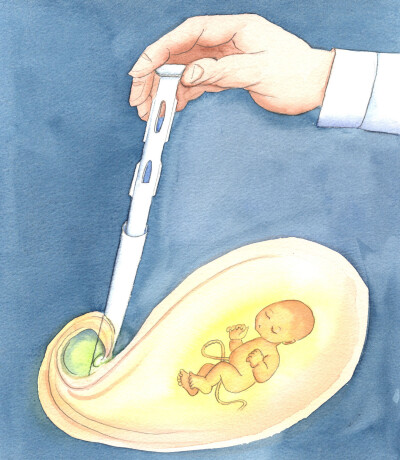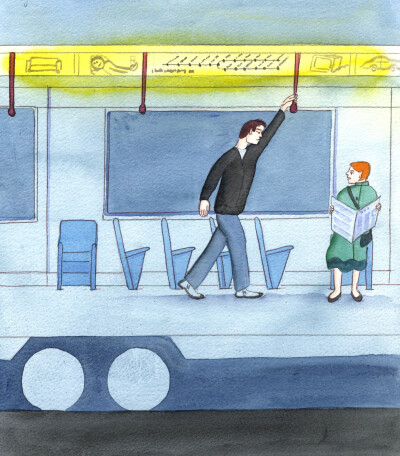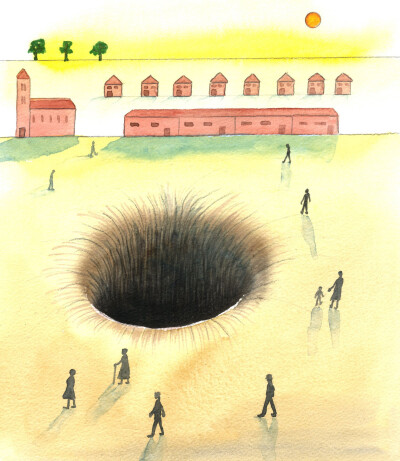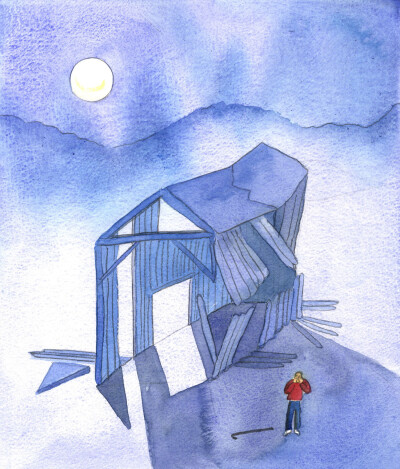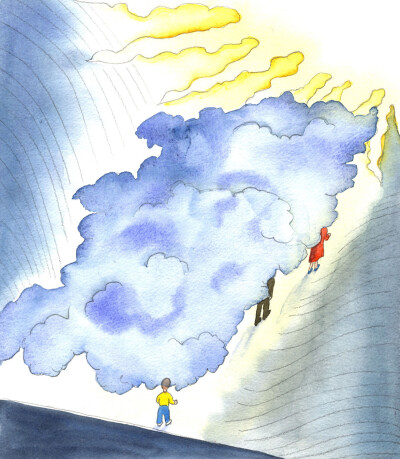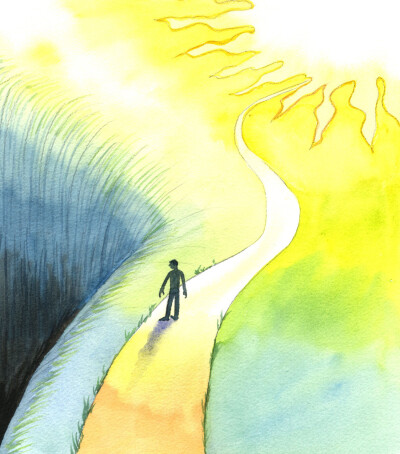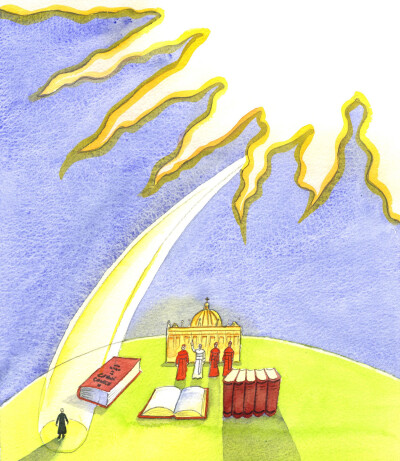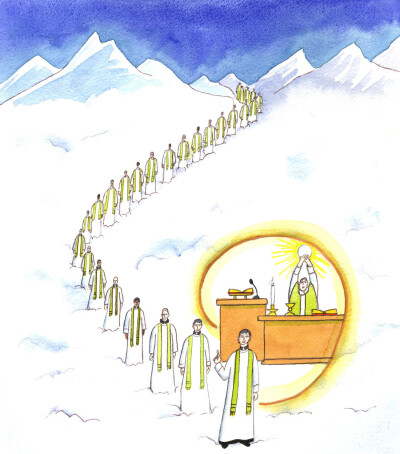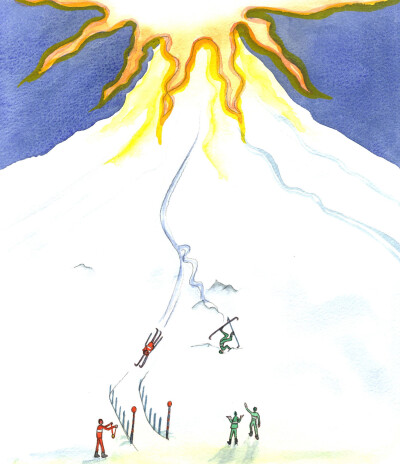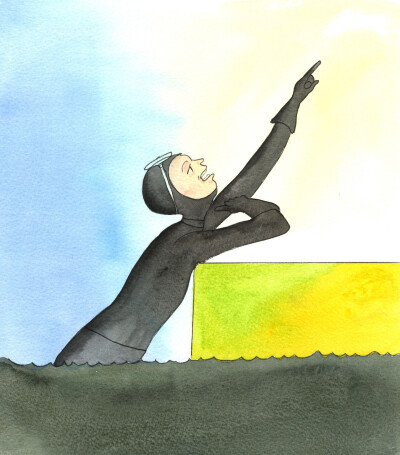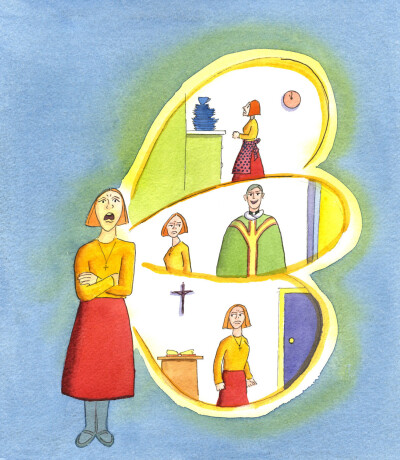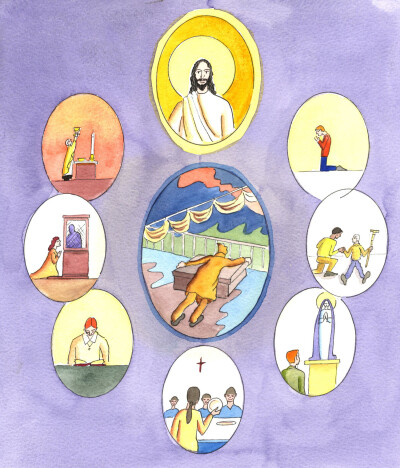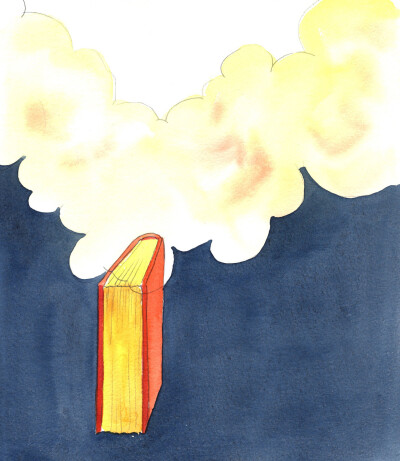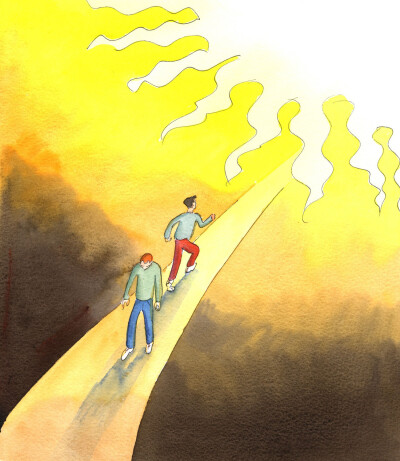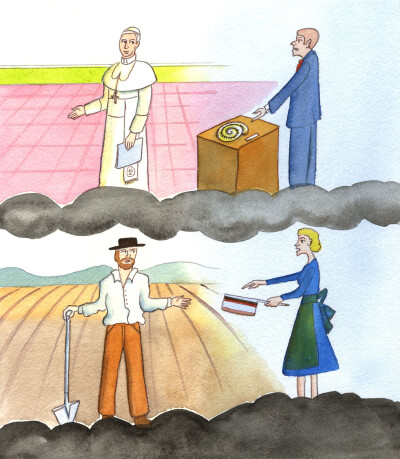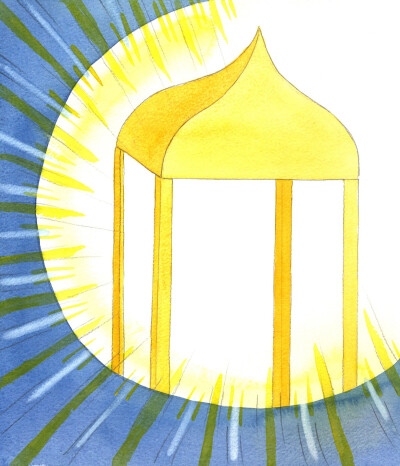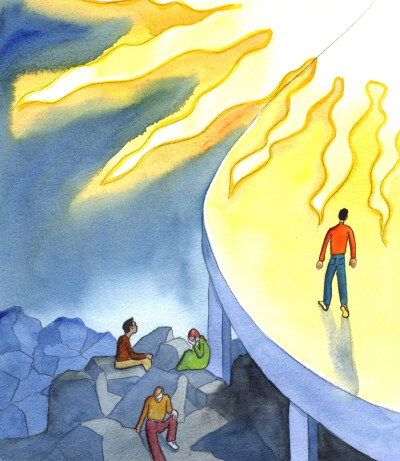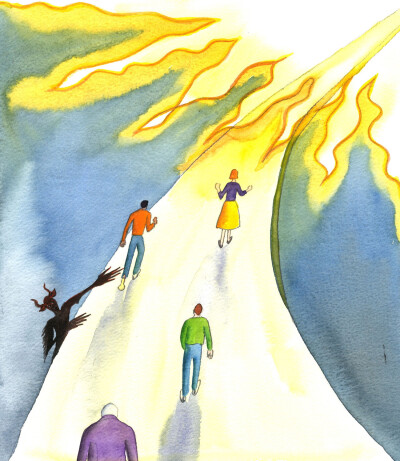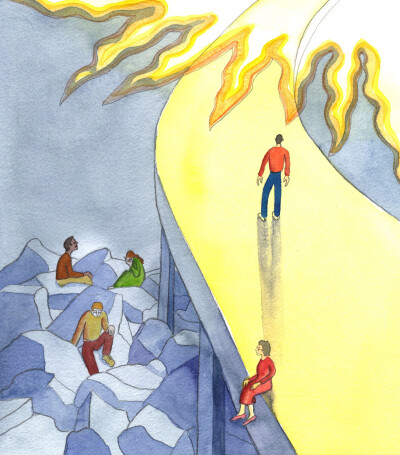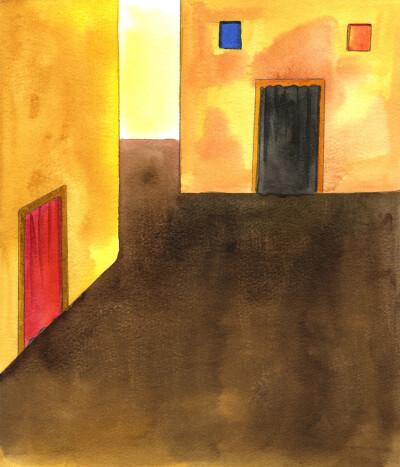Images » All Images
Showing 5061 - 5080 of 5265
The very tiniest embryo is a small person: a tiny, unique human being that deserves to be respected, not experimented on, or frozen, or thrown away if found to have flaws of any kind, or to be of a sex unwanted by the parent.
Just as we need to trust our judgement when we are in physical danger, so we must, too, in spiritual matters. Just as we are right to feel alarmed if someone entering a nearly-empty train carriage chooses to sit right next to us, so we are not wrong to feel alarmed at indications of spiritual danger; and we should call on the name of Jesus, and prayer of Our Lady to help us, and also use holy water to put Satan to flight.
We must work and pray to help the lost to avoid disaster. Many Catholics are falling away from the practice of the Faith. They don't seem to notice the moral vacuum at the centre of their lives, or in the life of society. It is like a great hole in the ground which endangers the lives of all who thoughtlessly walk or run around it. The hole has appeared through Christian societies introducing immoral laws, careless of the consequences: abortion, and other evils. Family life, and national life, are endangered.
It is important for us to be kind to the elderly as well as the sick. It is inevitable that when elderly people have serious mental problems, solely due to old age, their spiritual state can seem to be changed. They might be moody or impulsive, when they were not so in the past. A person can seem to resemble an old barn which still stands, but is evidently deteriorating. We must beware of falling beams - sudden rages - though persevering in kindness.
Wise people look at human life from the perspective of Eternity. We are right to try to be free of our ailments and handicaps - which seem like a great 'cloud' above us - as we move through life, towards Eternity. But even people who are, for example, deaf, or have speech problems, should be confident about life. What is important is communion with God, Who can 'hear' a single thought. Our ailments need not stop us from being close to Him, until our lives end in His presence, where He welcomes His friends into His embrace, in perfect communion, for all Eternity, all 'clouds' dispersed.
It is a cause for concern, when someone is following the Way of Christ, and had seemed willing to continue, but keeps pausing, wasting time, as he puts off doing the good things that he needs to do, to be worthy to enter Heaven joyfully rather than have to suffer in Purgatory. The temptations which threaten to overcome us could lead to our falling into the Abyss, nearby, and rising Eternal Loss.
We should think about God's nature, when we think about catechesis. Wherever a person whose duty it is to teach the Faith distorts it, or truncates it, to make it more palatable, that person does wrong. God Himself is Truth, so if we offer people a distorted truth, or a truth which leaves out essential elements or difficult-to-comprehend aspects, we insult God, even if we don't realise it.
In every age, since the time of the Apostles, priests have faced opposition and persecution as they have gone about their work. It is important that they are faithful to preaching the truth - the Faith in its entirety - and faithful to the Mass. That is his task: to teach the faithful how to lead good lives and prepare for Heaven, and to feed the faithful with Jesus Christ's Sacred Body and Blood: to transform them.
Already, God sees the end of each of us. From Eternity, God can see, all at once, the whole of human history. He sees which human beings have persevered in the 'race' to holiness and triumph, and which have come to grief through their own sin and foolishness, and have also set a bad example. This is true of the lowliest amongst us, and of clergy as well. Each of us must be alert, because, by some carelessness, or a moment's selfishness, we can drastically alter our direction, take a foolish course, and even lead others astray.
If we are in need of purification in Purgatory, when we die, we should welcome it, because we would be unable to bear the sight of God's glory; so our purification can be seen as a sort of acclimatisation. When we are ready, we emerge, joyfully, longing to enter Heaven, just as a diver ends his slow acclimatisation by bursting joyfully though the surface of the water to be greeted by his friends.
We are wasting time if we spend time grumbling instead of offering thanks. If we grumble, we feed our discontent, perhaps about our everyday duties, about the decisions of the priest, or about the dryness of our prayer. How can we pray without ceasing, with thankful hearts, if we cannot accept the Will of God in our lives (though this does not mean that we should be silent in the face of evil)?
Just as sailors at sea know how to 'batten down the hatches' and survive in a storm, because of some basic duties and basic wisdom, so must we hold fast to some Catholic 'basics' that will help us to remain faithful in all the storms of life. We need to know and love Christ, to turn to Him in prayer and in the Sacraments, especially the Holy Sacrifice of the Mass, and Confession. If we study the Scriptures, and ask for the prayers of the Saints and Angels, and show love to our families and to the poor, we do well.
If we could pierce the Heavens, we would still not 'understand' all about God. If we search the Sacred Scriptures, we can find out why Christ came to earth, but we cannot find out everything about the Mind of God in Eternity. He is far above us. We can draw reasonable conclusions about His plan, however. We need not say, 'Christ would have come to earth had man not sinned'. The freedom, through which man sinned, was always part of God's plan; so the sin was always foreseen.
In the spiritual life, we are never stationary. We are either moving closer to God or further away from Him. We either increase our union with Him, or diminish it, by every one of our thoughts, acts, words and choices.
A Pope hands on the Faith, telling us what must be believed if we are to live, pray and love and teach to live as faithful Catholics. He can impose discipline, and even decide whom he permits to teach in the name of the Church; but it is no part of his task to speak 'outside' his area of competence, for example, to tell us what to believe about fossils. He is no more an expert on these matters not directly relevant to the Faith than a farmer is an expert on how to cook the produce from his fields.
Christ makes the souls of sinners beautiful by His grace; and we sinful people can make our souls very beautiful by our trust in Him. When we really believe in His love for us, and act as though we believe that - confident in the power of prayer, and of the action of Divine Grace - our soul is like a beautiful temple, in His sight.
It is important that we persevere in our intercessions for the needy. There are many people who have not yet accepted the truth about God's love for them, His desire to free them from their sins, and the need for repentance and prayer, so that they can share God's life, through Christ, and follow the sure Way to holiness and Heaven. Without the life of grace, within them, people are trapped in sin and ignorance, as if in semi-darkness, in an area of chaos and hopelessness, beneath a shining highway.
Satan is tireless in his efforts to corrupt and endanger God's friends. There is a holy Way on which we can walk: a way of light and peace, on which we can walk in the knowledge and love of God, confident that by His grace and mercy we are making our way towards Heaven. Yet we must be vigilant until the moment of death, determined not to allow Satan's tricks, or our own weaknesses and sinful instincts, to draw us off that road.
Wise people recognise the truth that there are three states of life, in relation to Eternity. There are people already on the Way to Heaven: the bright Way made by Christ; and His Church calls all people to walk along it. Other people are in a gloomy, rocky area, not yet having found Christ, or not yet having put their trust in Him. And here and there, another state is seen, as someone is sitting on the edge of the Way to Heaven, temporarily overcome by inertia or lack of hope.
Christ wants us to realise that wherever there is suffering and injustice, His love is needed: His love, and respect for all who are generally treated as inferior or even worthless: girls and women, the uneducated or sick or disabled, or people of another race or background. A really just society is one that follows the teachings of Christ. We can ask, as a 'measure' of justice anywhere on earth, 'How are women treated in their families?'

